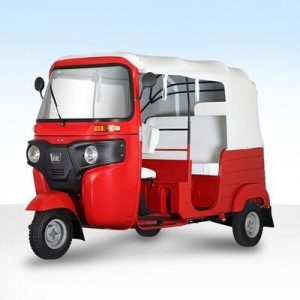
Agriculture
June 23, 2024
Bajaj RE 4S Tuk Tuk
Read SolutionImplemented by
Bajaj
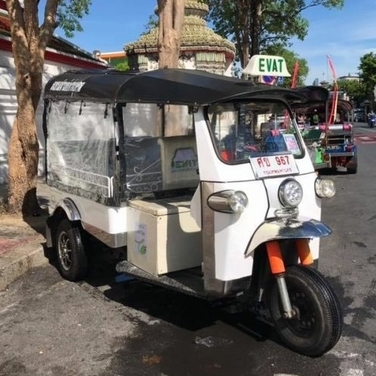
Updated on June 20, 2024
·Created on October 19, 2020
The EVAT Bangkok Model Tuk Tuk is an electric vehicle developed in Thailand.
The Bangkok Model Electric Tuk Tuk was launched by EVAT (Thai Electric Vehicle Association) to provide tuk tuk services following the Covid-19 pandemic and social distancing measures. The electric tricycle was developed from conventional petrol rickshaws. The vehicle has clear plastic sheets covering all sides of the vehicle to help separate the passenger and the driver and reduce the risk of spreading infection.
Target SDGs
SDG 7: Affordable and Clean Energy
SDG 8: Decent Work and Economic Growth
Target Users (Target Impact Group)
Small and Medium-sized Enterprises
Distributors / Implementing Organizations
EVAT (Thai Electric Vehicle Association)
Competitive Landscape
Direct competitors include E Tuk Tuk, Lifeway Solar E-Rickshaw, etukusa etuk classic, and Limo GT.
Countries
Thailand
Manufacturing/Building Method
Developed in Thailand
Intellectural Property Type
Trademark
User Provision Model
Unknown
Distributions to Date Status
As of June 2020, the product has not yet been released.
Capacity
4 total: 1 driver, 3 passengers
Gear Ratio
1:6.4
Maximum load capacity (kg)
Unknown
Design Specifications
The electric Tuk Tuk has been developed from the conventional petrol-burning tricycle. The max speed is 65 km/h, and the lithium iron phosphate (LiFePO 4) battery takes 6-8 hours to fully charge providing a range of 120 km. There is a plastic sheet covering all sides and separating the passenger and driver which can be rolled up when not in use.
Technical Support
Technical support is provided by the manufacturer
Replacement Components
Unknown
Lifecycle
Unknown
Manufacturer Specified Performance Parameters
EVAT promotes the use of electric vehicles in Thailand with the aim of reducing pollution and improving energy efficiency in the transport sector.
Vetted Performance Status
The manufacturer developed the vehicle prototype over a 1 year test period which included field tests. The tuk tuk was assessed for maximum speed (65 km/h), average distance on one charge (120 km) and battery charge time (6-8 hr). However, no third-party testing has been completed.
Safety
The vehicle has been designed to keep passengers and drivers safe from the transmission of Covid-19, with clear plastic sheets covering all sides of the vehicle.
Complementary Technical Systems
None
Academic Research and References
Yiangkamolsing, C., Laoonual, Y., Channarong, S., Katikawong, W., Sasawat, P., and Yaotanee, B., 2019, A Development of Electric Tuk Tuk Conversion in Thailand, IEEE Transportation Electrification Conference and Expo, Asia-Pacific, Seogwipo-si, Korea (South), 2019, pp. 1-8.
Electric Vehicle Association of Thailand. n.d. EVAT.
Sin, Joe. 2020. Thailand to Have Electric Tuk Tuks with Plastic Partitions for the New Normal Era. Bangkok Foodie, June 12, 2020.
Thaiger. 2020. Powering up Tuk Tuks for a New Era in Bangkok. Thaiger, June 3, 2020.
Compliance with regulations
The vehicle is registered at the Department of Land Transport in Thailand.
Evaluation methods
The manufacturer cites maximum speed, charging time and distance per charge as evaluation criteria.
Other Information
Watch EVAT's Facebook video here

Agriculture
June 23, 2024
Implemented by
Bajaj
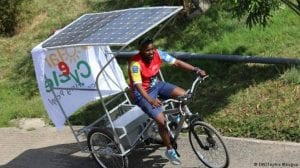
Agriculture
June 22, 2024
Implemented by
Solar E Cycles
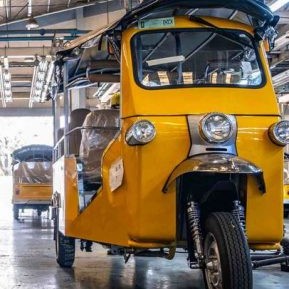
Agriculture
June 20, 2024
Implemented by
MuvMi
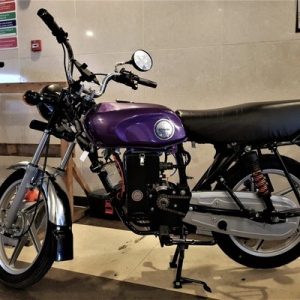
Agriculture
June 27, 2024
Implemented by
Bodawerk International Ltd
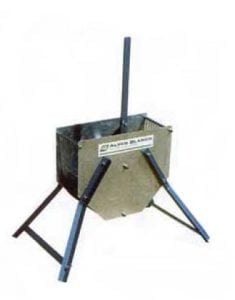
Agriculture
September 11, 2024
Implemented by
Alvan Blanch
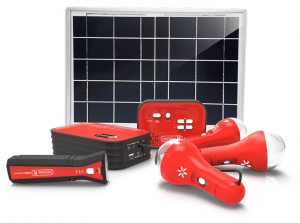
Agriculture
December 10, 2024
Implemented by
Renewit
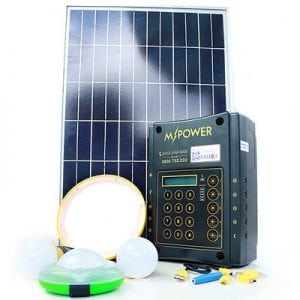
Agriculture
January 28, 2024
Implemented by
Off-Grid Electric
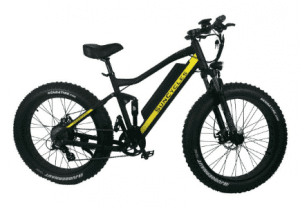
Agriculture
June 22, 2024
Implemented by
SunCycles
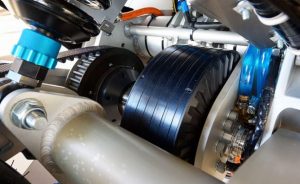
Agriculture
June 22, 2024
Implemented by
Emrax
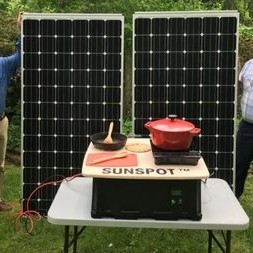
Agriculture
January 27, 2024
Implemented by
Sunspot PV LLC
Have thoughts on how we can improve?
Give Us Feedback
nice